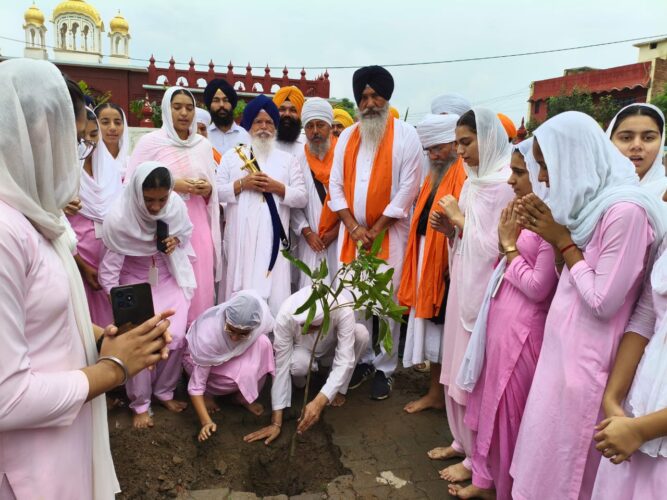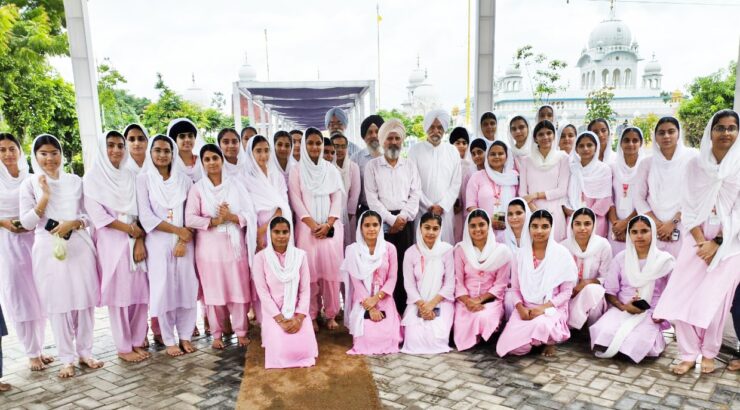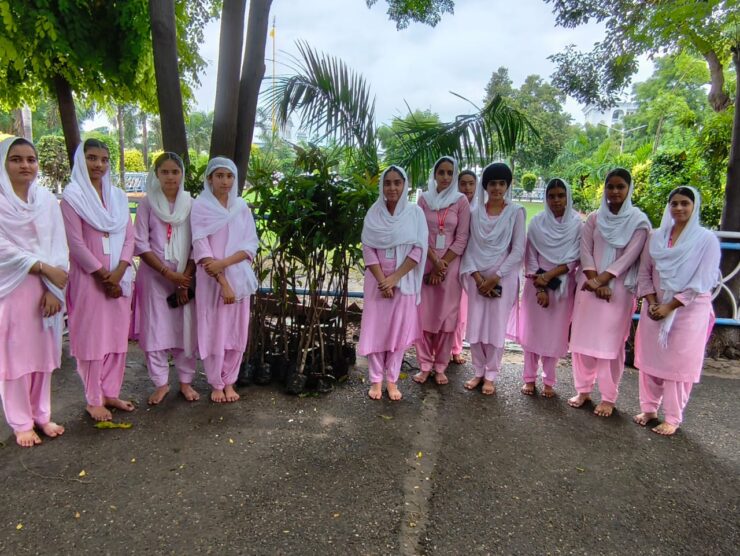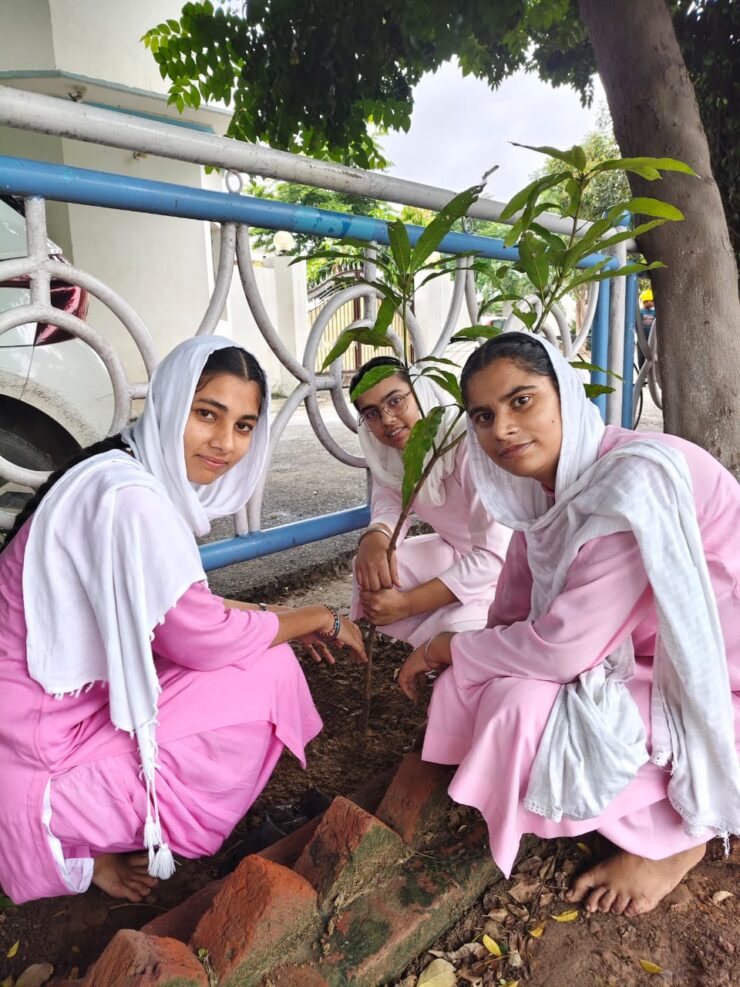Planting Hope for a Greener Tomorrow
In a significant step toward promoting climate change mitigation and environmental awareness, Akal University’s EcoClub, in collaboration with The Kalgidhar Trust, organized a Plantation Drive at the sacred premises of Takht Shri Damdama Sahib on 4th September 2025. The event saw enthusiastic participation from students, faculty, and community members, planting 100 saplings to contribute to a sustainable future.
Objectives of the Plantation Drive
The initiative was designed with clear and impactful objectives:
- Supporting India’s Climate Goals – Contributing to national and global missions for climate change mitigation through afforestation.
- Raising Environmental Awareness – Promoting eco-consciousness and collective responsibility for protecting natural resources.
- Community-Led Participation – Encouraging students and locals to join hands in restoring ecological balance.
- Policy Integration – Aligning with national plans like the Green India Mission, NDMA’s eco-disaster strategies, and global COP commitments.
A Sacred Blend of Spirituality and Sustainability
Planting saplings at Takht Shri Damdama Sahib was not only an environmental act but also a cultural gesture. The campaign symbolized the union of spiritual heritage with ecological duty, reminding everyone that caring for nature is a sacred responsibility.
Responding to Climate Challenges
This plantation drive comes at a time when climate change is intensifying natural disasters such as the devastating Punjab Floods of 2025. With rising temperatures, erratic rainfall, and ecological degradation affecting Punjab, Himachal, and Uttarakhand, initiatives like this are essential to create climate-resilient ecosystems.
Alignment with National & Global Climate Missions
This drive contributes directly to several important initiatives:
- National Mission for Green India (GIM): Enhancing carbon sequestration through afforestation.
- National Disaster Management Authority (NDMA): Encouraging ecosystem-based approaches to reduce disaster risks.
- National Afforestation and Eco-Development Board (NAEB): Promoting local participation in afforestation drives.
- National Action Plan on Climate Change (NAPCC): Advancing mitigation and adaptation efforts.
- India’s COP Commitments: Helping develop carbon sinks of 2.5 – 3 billion tonnes of CO₂ equivalent by 2030.
Key Outcomes of the Event
- Environmental Impact: 100 saplings planted to absorb CO₂, enrich soil, and sustain biodiversity.
- Disaster Risk Reduction: Enhanced natural barriers against floods, erosion, and extreme heat.
- Policy Support: Strengthening India’s environmental and climate action plans.
- Community Involvement: Active participation from students, faculty, dignitaries, and locals created a sense of collective responsibility.
Towards a Sustainable Future
Through this plantation drive, Akal University and The Kalgidhar Trust have reinforced their commitment to sustainability, environmental education, and India’s global climate agenda. This event is a call to action for everyone to contribute to the planet’s well-being and secure a greener, safer future.
































Add comment